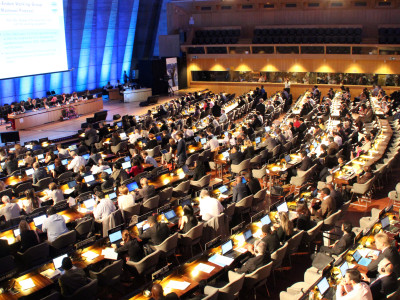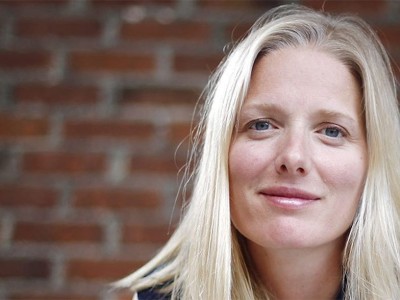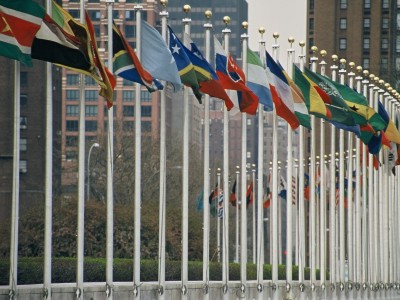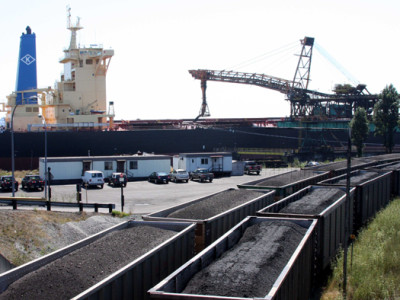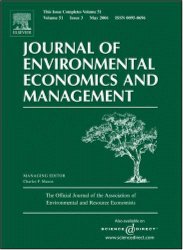Region: International
Happy World Toilet Day!
For Billions of People, Sanitary Facilities Are No Laughing Matter
It may seem silly to observe World Toilet Day, but as the motto of the World Toilet Organization (which was founded on November 19, 2001) reads: it’s no joke. Literally billions of people lack proper toilet facilities, and it can have severe impacts. Consider this recent testimony from a woman who grew up without one: To …
Continue reading “Happy World Toilet Day!”
CONTINUE READINGThe Mexican Energy Revolution
After decades of state control, Mexico opens its energy sector
November 20th is Revolution Day in Mexico – a national holiday celebrating the end of its ten year uprising against the dictator Porfirio Diaz. Also this month, Mexico will begin accepting bids on up to 6 million certificates for renewable energy, hoping to add up to 2,500 megawatts of clean electricity to its energy mix. …
Continue reading “The Mexican Energy Revolution”
CONTINUE READINGPromises to Keep
In the run-up to the Paris talks, the major economies have all pledged carbon reductions.
With Saudia Arabia’s pledge last week to cut emission, all of the world’s major economies are now on board. In a nutshell, here is what they are promising. Except as noted, the target dates are all 2030. A number of countries have subsidiary promises in terms of percentage of renewable energy or of bigger cuts premised …
Continue reading “Promises to Keep”
CONTINUE READINGA gift from the Montreal Protocol parties to the Climate Convention
Montreal Protocol parties agree to negotiate amendment to limit HFCs
Last week, the parties of the Montreal Protocol took an important step to broaden their treaty’s chemical controls to contribute to limiting climate change. The chemicals at issue are the HFCs, or Hydrofluorocarbons. (Like the other halogenated chemicals relevant to ozone depletion, the acronym tells you the chemical composition of the class of chemicals. The …
Continue reading “A gift from the Montreal Protocol parties to the Climate Convention”
CONTINUE READINGDon’t Blame Canada Anymore
Climate Policy Triumphs Over South Park in New Trudeau Government
We Americans tend to think of Canadians as nice, friendly, well-intentioned folk, a little more left-of-center than the US — sort of what Blue America would be if it didn’t have to deal with the south. For the last 10 years, though, that has been anything but true: the Conservative government of Stephen Harper brought …
Continue reading “Don’t Blame Canada Anymore”
CONTINUE READINGAddressing Externalities: A Modest Proposal
How to make health and safety a personal priority for industry officials.
According to economists, firms have little reason to take into account the cost of externalities — that is to say, the harms their activities may impose on others. The traditional solutions are damage remedies or taxes to transfer the financial cost to the industry, or regulation to force industries to limit their harmful activities. Why not …
Continue reading “Addressing Externalities: A Modest Proposal”
CONTINUE READINGPope Francis Goes to Washington
What he said and didn’t say
Pope Francis arrived in Washington, D.C. on Tuesday to begin a much anticipated trip to the United States. While here, the pope will visit DC, New York City, and Philadelphia. Pope Francis, a former chemist, has gained much attention for his calls for action on climate change, in addition to his focus on inequality and …
Continue reading “Pope Francis Goes to Washington”
CONTINUE READINGThe Sustainable Development Goals (SDGs)
Ambitious international targets for sustainability
From September 25-27, the UN is hosting the high-level Sustainable Development Summit and, assuming all goes according to plan, adopting the Sustainable Development Goals (SDGs). The result of years of negotiation with dedicated efforts at transparency and inclusion, the SDGs are a big deal in the international development community. They represent ambitious, consensus international targets …
Continue reading “The Sustainable Development Goals (SDGs)”
CONTINUE READINGThe Coal Export Wars Reach Oakland
In seeking an alternative route to Asian markets, coal’s path from Utah to China via Oakland hits a snag
Expanded west coast infrastructure to support the export of western U.S. coal to Asian markets has long been part of the business plans for some of the nation’s largest coal producers. However, attempts by Powder River Basin coal interests to construct or expand coal export terminals in Washington and Oregon in recent years have been …
Continue reading “The Coal Export Wars Reach Oakland”
CONTINUE READINGWhat’s New in Environmental Economics?
Some interesting recent publications.
It sometimes takes awhile for journals to reach my desk as they circulate among faculty, so this isn’t hot off the presses. But I’ve been looking at some recent issues of JEEM (the Journal of Environmental Economics and Management), and I found a number of very interesting articles. Fully grasping the articles would require a …
Continue reading “What’s New in Environmental Economics?”
CONTINUE READING






